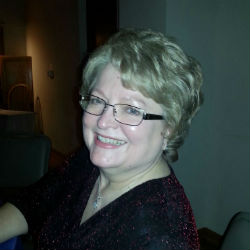 Meg Montford, Executive Career Coach & President with Abilities Enhanced.
Meg Montford, Executive Career Coach & President with Abilities Enhanced.
Meg provides professional career coaching with an emphasis on a career change and transition.
She launched her business as a professional resume writer and steered it toward career coaching when she discovered how she was investing so much time into coaching resume clients before she could even begin to write their resumes.
She has motivated thousands to overcome career challenges. Her resume samples and careerist contributions are published in 19 books. Media seeks out her expertise for articles.
1. What led you to write resumes? Do you have a background that made you an ideal fit for the industry?
I started out in the careers field as a recruiter/staffing specialist in 1986, then moved into job development and placement for a couple of grant programs prior to launching my own careers business in 1999.
I’ve always enjoyed writing – won some awards in high school and received journalism honors in college.
Resume writing seemed a natural fit to start my online business.
2. Now that you’ve been in the industry for a while, would you recommend it to others? Why?
It can be a tough field to break into. You must have a love of technical writing, know the careers industry inside out, and enjoy working alone a lot of the time.
Of course, quickly getting resume writing certification is critical. However, the biggest challenge is having the ability to market your skills to attract clients.
When starting out, you will need to spend more time marketing your business than working in it.
If you think you are a fit for all of these things, then go for it!
3. What is the single best tool you recommend for building client relations? Building your business? Improve efficiency?
Creating a blog focused on your specialty will get you in front of potential clients the fastest.
Being active in social media is a must, too.
If you want to just focus on your local market, then I suggest free public speaking to business-related groups to quickly build your business.
Once you get a little experience, you may want to write a book that you can self-publish to distribute to your target market. Publication results in perceived expertise.
The point of these recommendations is to gain public recognition as an “expert” in your field.
4. If you could share one learning experience/great lesson, what would it be?
As a resume writer, don’t depend too much on “spell-check” when writing resumes.
I’ve made a couple of whoppers over the years when proofing my work.
Once I sent out the resume draft to my client who was targeting the public administration field.
Luckily, she caught my mistake – leaving the “l” out of the word public.
How embarrassing!
5. Looking back, what would you have done differently? Done the same?
Differently: I would have formed a resume writer consortium.
The task of writing itself is so time intensive.
You can earn more revenue if you have a team of writers collaborating to reach clients and produce resumes.
Same: Join professional resume writing associations to network with peers, increase my knowledge, and spotlight my talents through resume writing contests.
And, of course, becoming credentialed/certified.
6. What advice would you give someone just entering the resume-writing industry?
Stay focused and committed, wisely market your business, and learn from your mistakes, as well as those of other resume writers.
Also, study the books authored by our industry’s greats including Wendy Enelow, Louise Kursmark, and Susan Britton Whitcomb.
7. How do you see our industry transforming over the next 12 months? 5 years? What do think resume writers need to know in order to survive?
First, when it comes to marketing, get on board with social media: LinkedIn, Twitter, Pinterest, and Facebook.
That’s where you can spotlight your expertise to attract clients – without investing financially in the program.
Second, become adaptable to change as HR processes and methods evolve, especially in their technology.
We may see the day when printable resumes are no longer in vogue – so font, format, and style will not be as important, or at least, will change drastically.
With the increasing popularity of I-Pads, smartphones, etc., printed paper is going the way of land-line phones.
I can see a time when your resume will be assigned a “barcode” by HR and then everyone in your job interview will pull it up on their smartphone to review while speaking with you.
Pay attention to the requirements of the HR Application Tracking Systems – candidates must be “findable” to get the call for interviews once their resumes are submitted online and stored in these systems.
